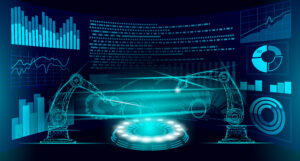The automotive industry is undergoing a major digital transformation, with manufacturers investing heavily in automation, AI, and connected systems. According to a recent Frost & Sullivan survey, IT spending in the sector has surged from $38 billion in 2015 to an estimated $168 billion in 2025. Despite this growth, many manufacturers still struggle with outdated processes, fragmented operations, and data management issues.
Driving Forces Behind Digital Transformation
The COVID-19 pandemic exposed vulnerabilities in manufacturing operations, pushing companies to adopt digital tools for remote monitoring and process optimization. Additionally, ongoing semiconductor shortages and the growing demand for electric and autonomous vehicles have further accelerated the push for advanced digital solutions. Reports indicate that manufacturers plan to increase their digital investments by up to 24% in the coming years.
Challenges in Automotive Industry
While digital transformation promises efficiency and innovation, many automotive companies face key obstacles:
- Maintaining high uptime and improving cycle times
- Ensuring cybersecurity amid rising digital threats
- Adapting to the shift toward EV and autonomous vehicle production
- Addressing workforce transitions as experienced employees retire
Innovative Solutions Reshaping the Industry
Leading companies are already implementing cutting-edge technologies to optimize operations. Some recent advancements include:
- Automated Weld Quality Control – A major automotive OEM digitized its weld inspection process, improving accuracy and reducing cycle times.
- Smart Storage & Retrieval Systems – AI-driven solutions now optimize vehicle sequencing in assembly lines, ensuring efficient production.
- Paint Quality Analytics – AI-powered defect detection helps manufacturers identify and fix issues before vehicles reach consumers, enhancing brand reputation.
Moreover, emerging technologies such as Augmented Reality (AR) are transforming the plant floor by guiding workers through assembly processes in real time. Cloud computing is also gaining traction, offering greater data accessibility and integration across facilities.
The Future of Automotive Digital Transformation
As the industry adapts to electrification, automation, and evolving consumer expectations, digital transformation is no longer optional—it is essential. Manufacturers that embrace AI, IoT, and data-driven decision-making will lead the future of automotive innovation, ensuring higher efficiency, quality, and competitiveness.
Source: https://www.gevernova.com/software/blog/what-digital-transformation-automotive-manufacturing


